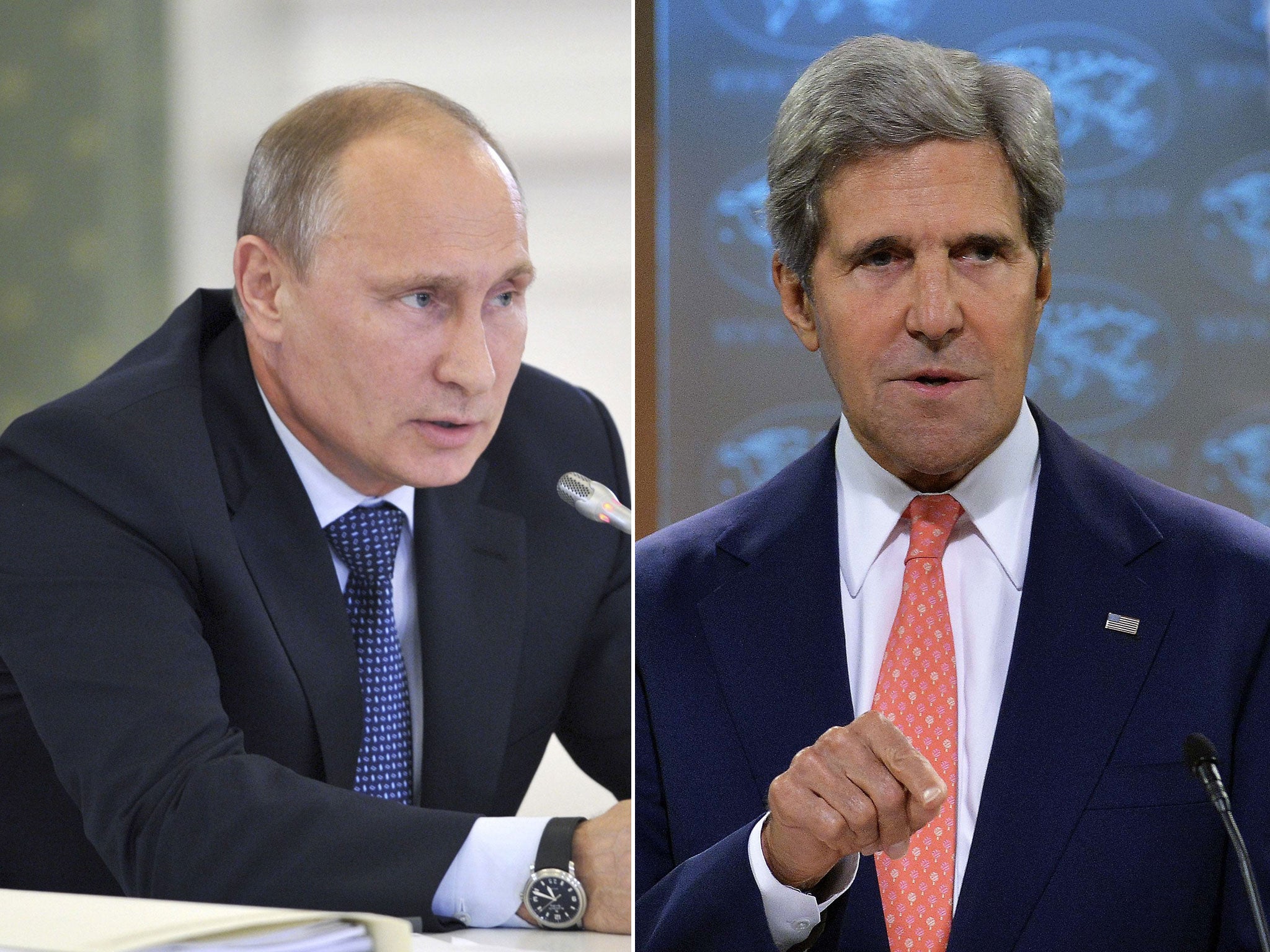Syria: Russia’s warning falls on deaf ears as Britain and US prepare to bomb
Number 10 asks Government’s most senior law officer to justify participation in air strikes

Your support helps us to tell the story
From reproductive rights to climate change to Big Tech, The Independent is on the ground when the story is developing. Whether it's investigating the financials of Elon Musk's pro-Trump PAC or producing our latest documentary, 'The A Word', which shines a light on the American women fighting for reproductive rights, we know how important it is to parse out the facts from the messaging.
At such a critical moment in US history, we need reporters on the ground. Your donation allows us to keep sending journalists to speak to both sides of the story.
The Independent is trusted by Americans across the entire political spectrum. And unlike many other quality news outlets, we choose not to lock Americans out of our reporting and analysis with paywalls. We believe quality journalism should be available to everyone, paid for by those who can afford it.
Your support makes all the difference.Russia warned Britain and America yesterday that they would be in “grave violation of international law” if they carried out air strikes against the Syrian regime without the approval of the United Nations.
Amid growing concern at home and abroad about the legitimacy and wisdom of the UK participating in an attack on the Assad regime without UN authorisation, the Government’s most senior law officer will be asked to justify the Britain’s participation in strikes at a meeting of the National Security Council tomorrow.
However, there were no signs of Downing Street backing off from its intention to join America in the use of military force. A Downing Street source said they still expected action within two weeks while a spokesman for the Deputy Prime Minister, Nick Clegg, said he was also fully behind a “proportionate” response to President Assad’s use of chemical weapons.
Last night, Mr Cameron spoke to the Russian President Vladimir Putin for 20 minutes in a call which Downing Street described as “business-like”. Mr Putin reportedly told Mr Cameron that UN weapons inspectors must be given time to analyse properly the cause of the attack. However, he did not repeat comments made earlier by the Russian Foreign Minister, Sergei Lavrov, that any unilateral action would be illegal.
Comments by John Kerry, the US Secretary of State, last night calling the evidence against the Syrian regime “undeniable”, left little doubt that the Washington was preparing the ground for some kind of punitive action. A senior member of the US Senate, Bob Corker, said a US attack against Syria was “imminent”, though there was no way to verify that. “I don’t think there’s any question in the administration’s mind that chemical warfare has been used and that when we’re involved, it’s surgical, proportional to what has occurred,” he said.
On a visit to Indonesia, the US Defence Secretary, Chuck Hagel, indicated that Washington was not willing to act alone or outside the “framework of a legal justification”. Taking a much harder tone, Mr Kerry said it was not the job of UN inspectors to determine who had unleashed the weapons, firmly rejecting the regime’s denials of responsibility for the “cowardly crime”.
Mr Cameron will return to Downing Street from his holiday in Cornwall this morning and is expected to make a decision on whether to recall Parliament. The move is seen as increasingly likely after a succession of Tory MPs made it clear they expected to be consulted ahead of any action.
The Conservative MP Sarah Wollaston said there was no threat to UK national security and Parliament should be consulted to act as a brake on an escalation of the situation. “I sense that we are on a headlong rush into escalating this conflict and I think Parliament can act as a natural brake to that,” she said.
Without a UN mandate for action – which would be impossible to achieve because of Russian and Chinese opposition – the legal mandate for war would likely rest either on the “right to protect” civilians, as happened when Nato bombarded Serbia in 1999, or the need to prevent breaches of international conventions outlawing the use of chemical weapons.
The Independent understands that the Attorney General, Dominic Grieve, has been asked by Mr Cameron to review the legal situation and report to the NSC at its meeting tomorrow.
However, the Foreign Secretary William Hague appeared to suggest that the Government did not see any significant legal obstacles to action. He told the BBC: “The United Nations Security Council has not shouldered its responsibilities on Syria otherwise there would have been a better chance of bringing this conflict to an end a long time ago.
“So, is it possible to act on chemical weapons, is it possible to respond to chemical weapons without complete unity on the UN Security Council? I would argue, yes it is. Otherwise, of course, it might be impossible to respond to such outrages, such crimes and I don’t think that is an acceptable situation.
“It is possible to take action based on great humanitarian need and humanitarian distress, it’s possible to do that under many different scenarios. But anything we propose to do on this, the strong response that we’ve talked about, whatever form that takes, will be in accordance with international law.”
Join our commenting forum
Join thought-provoking conversations, follow other Independent readers and see their replies
Comments